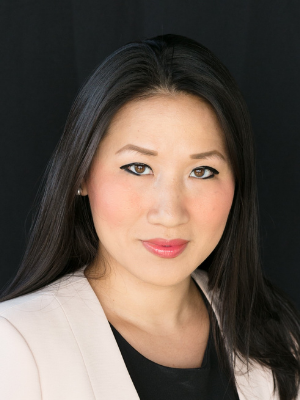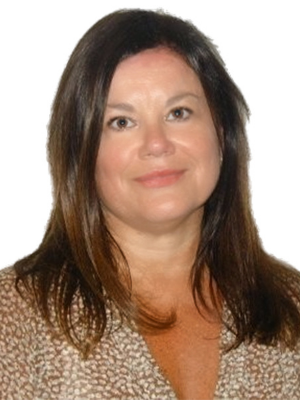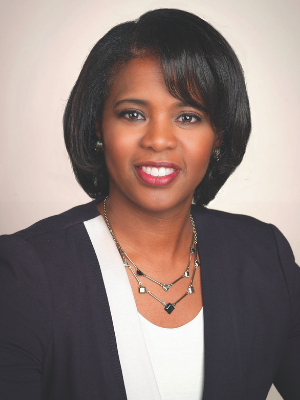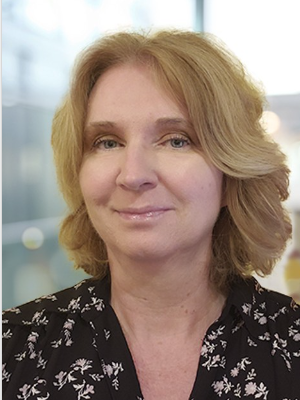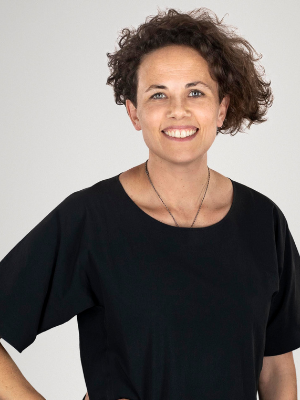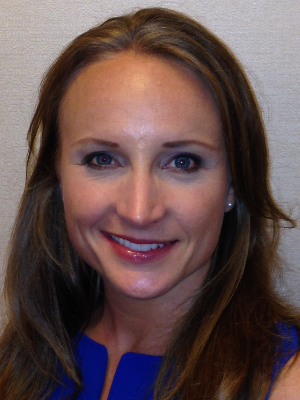 “I think women’s trajectories should not be compromised when they have children, and that’s something that we need to advocate for,” says Geklang Lee. “I was fortunate enough to work in companies which were more enlightened.”
“I think women’s trajectories should not be compromised when they have children, and that’s something that we need to advocate for,” says Geklang Lee. “I was fortunate enough to work in companies which were more enlightened.”
Lee speaks to accepting challenges, taking a career break for motherhood, being an executive and showing up in full integrity.
Seizing The Opportunity to Level Up
Born in Singapore, Lee was initially drawn to chemistry and biochemistry and scientific research. Unable to align with a path in genetic engineering, she took a completely different turn and chose to do research in the financial world.
She began in a research role on the sell-side in the public sector: “That fulfilled my desire and my interest in research. It fulfilled the analytical aspect of me.” Her enjoyment of the work drove her success and by 32 years old, she was a managing director.
Then Lee shifted to become a strategist, heading up the equity business in Singapore for Indosuez WI Carr, before moving again to become an Executive Director at UBS, to set up the Singapore Equities institutional research team which was subsequently ranked by Institutional Investors. As leadership opportunities came at her, Lee took them on despite the internal doubts to whether she was ready.
“Very often, women are much more cautious about opportunities or in raising their hands for opportunities. We feel like we need to be sure and know everything before we commit, because we want to do well,” says Lee. “But my view is that we should not shy away from challenging opportunities, putting ourselves out there and getting out of our comfort zone. If we set our minds to it and are willing to put in the hard work, then we can get the job done.”
Letting Go For Motherhood and Coming Back Again
“So many women feel that if they take time off to have a baby, they will be disadvantaged,” she says. “Sometimes organizations feel that way, too: you take time off, someone has to do your work, so there has to be a compromise. But I strongly disagree with that.”
In her case, both times Lee took maternity leave to have her children, she experienced an advancement. While on maternity leave with her first child, she received a big salary increase. When she came back from her second maternity leave, she was promoted to head the Singapore equity business at Indosuez WI Carr.
When over 40 years old, Lee left the UBS Executive Director role to spend three years with her three children, even though it felt like a risky move.
“I had already missed the growing years for my two older kids. I’d always had that guilty feeling of not being a mom, and had told myself I would look after my grandchildren,” she says. “But when my youngest was born, I decided, no, why should I wait? I actually wanted to spend time and bond more with my kids.”
For the first year, she retained a part-time consultancy with UBS. For the second two years, she was a full-time mom. Then as circumstances changed with her husband’s firm, she decided to return to work and reached out to her network contacts, which she had nurtured. Soon she was running the global real estate market neutral strategy for a hedge fund, before moving to PGIM Real Estate.
“Women shouldn’t be concerned about not being able to come back into the workforce, but I think what is critical is that we need to keep our contacts, “she says. “I always encourage people to keep your contacts within the network, as it’s extremely important for helping to build career path and opportunities, staying in touch with the markets, and moving jobs or returning to the workforce.”
Shifting To The C-Suite
At PGIM, Lee had the opportunity to go from managing the Asia Pacific public equities real estate portfolio to assuming the position of Chief Operating Officer for Asia Pacific real estate business. Moving from investments to a COO role was definitely pushing beyond her comfort zone.
“As a COO, you cannot be an expert in everything, but the team is there to support us as leaders. We provide the strategic direction,” says Lee. “Humility is important, recognizing they know more than me in the job they do, because they are the experts.”
Lee is dedicated to developing people, and emphasizes the leadership traits of versatility and adaptability—being open to different mindsets, perspectives and ways of doing things.
“Even if someone presents something that I do not agree with initially, I do need to listen, and reflect before making any judgments,” she says. “Everyone has a lot to offer. The young people today have a lot to offer, and if we are open enough to listen and allow them to present their ideas, then it will make us all stronger leaders and a stronger organization.”
Showing Up With Integrity
Lee never planned her career path, but has always put her best into anything she does. She feels that in her case, her commitment and hard work produced results, earned recognition and created opportunities.
Lee learned by emulating some of her previous supervisors. When she was deputy head in a previous firm, she noticed and admired how the head of the team did everything with the team’s interests in mind.
“When I was subsequently promoted to his position, because he moved on to greater things, I remember asking myself: am I willing to fight for my team, even to the extent that I may compromise my job? Am I willing to fight for my team for what is right?” she says. “Only when I was prepared to do that, did I accept the role.”
Thinking to her childhood, Lee remembers being a little girl in an underprivileged family and loving music but being unable to afford music lessons. When she was able to join the school band, her instructor said: “whether it rains or it snows, you have to turn up for practice.” She laughs that it never snows in Singapore, but if it were to, you still show up. At seven or eight years old, this left a big impression upon her.
“I think that developed my sense of commitment,” Lee reflects. “When you commit to do something, you just turn up. You turn up all the time. Regardless.”
Doing Things Differently and Better
Lee feels that as a woman, she shows up differently in a way that strengthens the table.
“As a woman, I don’t look at everything just as a task. There is often that softer touch that we bring to the table,” she says. “That helps when I’m running teams, because I’m not only interested in the output, but just as much in the individual.”
Lee is excited about how the forced circumstances of remote working has created rapid technology advancements and mindset shifts while raising questions: “How do we connect with our colleagues? How do we make sure that they feel part of the organization? How do we continue to build a team culture?”
Lee is energized by the company’s strategic operating initiatives —known as PGIM Real Estate 2.0—being ed by PGIM Real Estate’s Global chief operating officer, Cathy Marcus: “It’s essentially encouraging us to rethink the way we do things, and why we do them that way, in order to see if things can be done better,” says Lee.
Her children are now 27, 25 and 21. Lee loves sports and runs every day. She also plays the saxophone, enjoys pottery and embroidery, and does volunteer work with refugees in the greater region as well as migrant workers.
By Aimee Hansen

